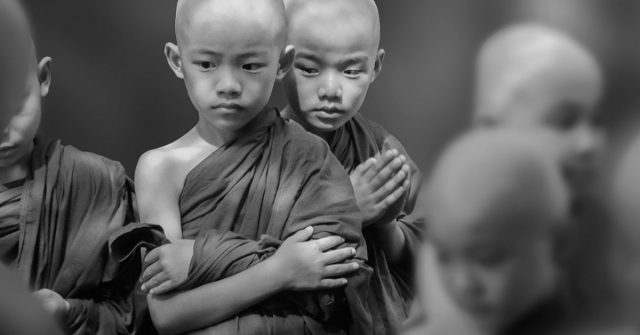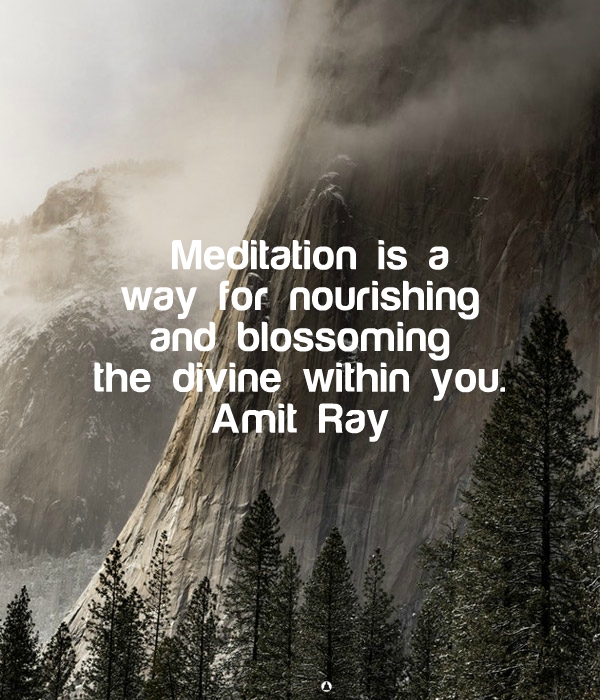Is there a key to living a peaceful and happy life? And if there is one, what can we possibly do to find it?
The answer to this question lies in the hands of the Buddhist monks. For more than two thousand years, they have been passionately dedicated to teaching us how to reduce human suffering and negative energy and find happiness and peace within ourselves while focusing on the present moment.
However, happiness and peace are not permanent and therefore we need to learn a way to continuously renew and nourish them. To achieve that, we need to adopt and unwaveringly follow the Buddhist monks’ most important principles and habits on how to lead a happy and peaceful life.
Here they are:
Habit #1 – Outer decluttering
Did you know that Buddha was born a prince? Although he could’ve lived a life of materialistic abundance, he didn’t. He abandoned everything when he realized the frustrating nature of material things and that they prevented him from finding his inner peace. And thousands of years later, Buddhist monks still do the same.
The truth is that many of us desire and accumulate unnecessary possessions – like we’re addicted to it. However, choosing to hold on to superficial, material things will make it harder for us to grow spiritually, which is the main goal of Buddhism. If we want to achieve spiritual growth and freedom, we need to declutter our material possessions and keep them to a minimum.
Habit # 2- Inner decluttering
Buddhist monks are taught to do things for others, not for themselves. When they meditate, it’s for the sake of everyone. They attempt to attain enlightenment so as to reach their full potential and help people who are in need.
When you develop this selfless, altruistic attitude, you focus less on your personal problems and become less concerned with the superficial, meaningless things in life. As a result, you become more at peace with yourself.
Habit #3 – Meditating regularly
In order to reduce stress and bring and maintain peace in your life, you need to learn how to calm your brain through meditation.
Buddhist monks practice meditation every day and they always stick to their schedule. They wake up early and meditate for 1 to 3 hours and do the same thing at night. Of course, you don’t have to adopt this demanding schedule. But, if you can make up your mind to start practicing meditation for at least 30 minutes a day and make this a part of your daily routine, instead of watching TV and surfing the Internet for hours, it will undoubtedly benefit you for a lifetime.
Habit #4 – Following the wise
Buddhist monks see the elderly as a source of wisdom. On their spiritual journey, they often seek elder spiritual guides that can help them on their path.
Everywhere around us, there are people we can learn from. Every person has experienced something that we haven’t and can teach us something we don’t know.
Older people are more experienced, which means they can offer you innumerable valuable life lessons. That’s why it’s important for you to be humble enough to admit when you don’t know something, keep an open mind, and always be eager to learn more.
Habit #5 – Listening attentively and without judgment
People naturally tend to judge others. When we’re talking with someone, we listen with the intent to respond, rather than listen to understand what they’re saying or learn something. And when we judge others, we create distorted perceptions of them which is neither good for them nor for us.
Buddhists believe that the main goal and benefit of communication are listening carefully and free of judgment the other person so as to understand what they’re saying and learn something. They believe in understanding others through conscious mindfulness, rather than evaluating and criticizing people.
Habit #6 – Change is the only constant.
Everything is eventually subjected to change. Our appearance, our behavior, our relationships, our surroundings – everything. According to Buddhist master Suzuki, you can’t find perfect composure without accepting the fact that everything changes.
Yet, we attach strongly to things and whenever we come across some kind of alteration, we find it hard to accept it and we suffer. That’s why we need to understand that everything about our consciousness comes and goes, and even our thoughts are constantly changing.
We need to realize that the moment is all that exists. And knowing this, when we find ourselves in situations which make us feel anxious, angry, afraid, or sad, we can easily diffuse these negative emotions.
When you realize the transience of everything around you, you start to let go and enjoy the world for what it is.
Habit #7 – Embracing the present moment
It can be difficult for some people to embrace the present moment and enjoy its beauty. We often think about past events and worry about the future. Our minds can drift so easily.
But, practicing mindfulness can help us redirect our focus and thoughts back to our senses and the task we’re engaged in.
You’re here, living right now. There’s no use whatsoever dwelling on the past as it often brings regrets, and longing for the future because it usually leaves us wondering.
So, in order to understand the true meaning of your existence and fill your life with happiness and peace, it’s important for you to live and cherish the present moment.



